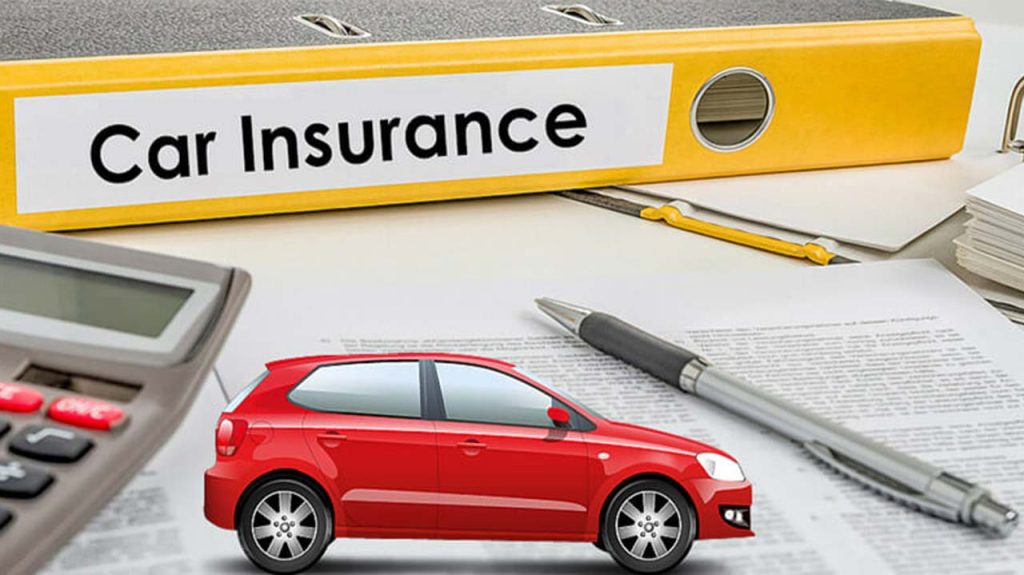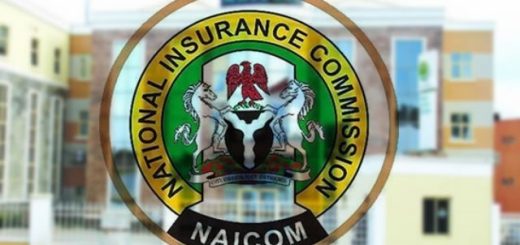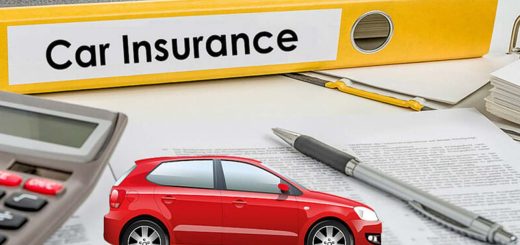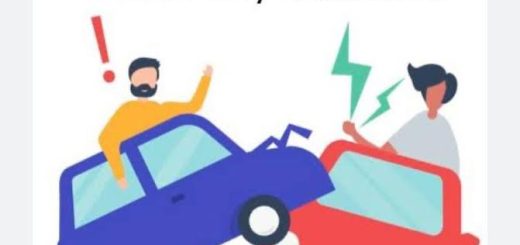How Car Insurance Promotes Road Safety in Nigeria
Nigeria is a vibrant nation on the move, and with that growth comes an increase in vehicles on the road.
This can be a double-edged sword. While it signifies economic progress and personal mobility, it also raises concerns about road safety.
Statistics show that Nigeria has a high rate of car accidents, making safe driving habits a critical priority.
One factor that might surprise you is how car insurance itself can play a role in promoting road safety.
It’s not just about financial protection after an accident.
In this blog post, we’ll delve into the ways car insurance in Nigeria actually incentivizes safer driving behaviors, ultimately benefiting both drivers and pedestrians alike.
We’ll explore the connection between car insurance types (third-party vs. comprehensive) and risk-based pricing.
You’ll learn how insurance companies can encourage responsible driving through financial incentives, and how some go a step further by promoting defensive driving courses.
We’ll also acknowledge the challenges and limitations of car insurance as a standalone solution, and discuss the importance of collaboration with the Federal Road Safety Corps (FRSC) and other stakeholders to create a safer driving environment for everyone in Nigeria.
So, whether you’re a seasoned driver or a new car owner just starting your insurance journey, this blog post is for you.
By understanding how car insurance goes beyond financial protection and contributes to road safety, you can make informed decisions and become a part of the solution.
Let’s buckle up and explore how car insurance in Nigeria can put the brakes on accidents and create a safer road for all.
THE LINK BETWEEN CAR INSURANCE AND ROAD SAFETY IN NIGERIA
Car insurance in Nigeria might seem straightforward – you pay a premium, and the insurance company covers you in case of an accident.
But there’s a fascinating interplay between car insurance and driver behavior that goes beyond simple financial protection.
Here’s how car insurance plans nudge drivers towards safer choices on the road:
1. BY UNDERSTANDING CAR INSURANCE OPTIONS
In Nigeria, you have two main choices: Third-party and Comprehensive coverage.
- Third-party liability is the compulsory and minimum legal requirement. It ensures that if you cause an accident, the other party’s (third-party) injuries and property damage are covered. This helps avoid financial burdens for those you might accidentally injure. However, your own vehicle wouldn’t be covered under this plan.
- Comprehensive insurance offers broader protection. Imagine this scenario: you’re involved in an accident, and regardless of who’s at fault, your comprehensive insurance would take care of repairs to your own car in addition to covering any third-party damages. This broader coverage acts as a financial disincentive for reckless driving. After all, a serious accident could leave you facing hefty repair bills on top of potential legal issues.
2. BY RISK-BASED PRICING
Insurance companies aren’t fortune tellers, but they are pretty good at assessing risk.
They use your driving history and vehicle type to create a risk profile.
Drivers with a clean record and a history of safe driving habits are considered lower risk.
This translates to lower premiums.
It’s like a reward for being a responsible driver!
On the other hand, drivers with a history of accidents or traffic violations are seen as higher risk.
This can lead to higher premiums.
Think of it as a gentle nudge – the insurance company is essentially saying, “Hey, a few risky choices on the road can cost you more in the long run!”
This financial incentive can motivate drivers to adopt safer practices behind the wheel.
When you understand these two key aspects of car insurance in Nigeria, you can see how it goes beyond just financial protection after an accident.
It actually creates a system that rewards responsible driving and discourages risky behavior, ultimately contributing to a safer driving environment for everyone.
SPECIFIC WAYS CAR INSURANCE PROMOTES ROAD SAFETY IN NIGERIA
We’ve established the connection between car insurance and encouraging safer driving habits.
Now, let’s delve deeper into the specific ways insurance companies in Nigeria go beyond basic coverage to incentivize responsible behavior:
FINANCIAL RESPONSIBILITY
- Discouraging Reckless Driving: Comprehensive insurance coverage acts as a financial disincentive for reckless driving. Imagine this scenario: you’re faced with a situation where a risky maneuver might save you a few minutes. However, if it leads to an accident, even if you’re not at fault, the repairs to your own car could be significant. Comprehensive insurance helps you avoid this financial burden, but it doesn’t eliminate it entirely. This potential out-of-pocket cost nudges drivers towards prioritizing safe driving practices.
- Promoting Safe Vehicle Maintenance: Some insurance companies offer discounts for policyholders who maintain a regular service history for their vehicles. Regular maintenance helps to identify and address potential mechanical issues before they escalate into major problems that could lead to accidents. This not only promotes safer driving but also potentially reduces future repair costs, benefiting both the driver and the insurance company.
FOCUS ON PREVENTATIVE MEASURES
- Defensive Driving Courses: As mentioned earlier, some insurance companies offer discounts for completing defensive driving courses. These courses go beyond basic driving skills, equipping participants with knowledge and techniques to anticipate and avoid potentially dangerous situations on the road. Imagine learning how to identify aggressive drivers or mastering hazard perception skills. These valuable tools can significantly reduce the risk of accidents.
- Partnerships with Road Safety Initiatives: Forward-thinking insurance companies might partner with organizations promoting road safety. This could involve sponsoring educational campaigns, participating in community events, or even offering discounts to members of road safety organizations. Such collaborations raise awareness about safe driving practices and create a more comprehensive approach to improving road safety in Nigeria.
- Telematics and Usage-Based Insurance (UBI): While not yet widespread in Nigeria, some insurance companies are exploring telematics technology. UBI programs use in-vehicle devices to track driving behavior (e.g., speeding, harsh braking) and offer discounts to safe drivers. This emerging technology has the potential to further incentivize responsible driving habits in the future.
CHALLENGES AND LIMITATIONS
While it’s true that car insurance plays a positive role in promoting road safety, it’s important to acknowledge its limitations in the country:
LIMITED INSURANCE PENETRATION
Unfortunately, not all vehicles in Nigeria are insured.
This means a significant portion of drivers operate without the financial incentive to prioritize safe driving habits offered by car insurance.
ALSO READ: PENALTIES FOR DRIVING WITHOUT CAR INSURANCE IN NIGERIA
INFORMAL DRIVING PRACTICES
Road safety in Nigeria also faces challenges from informal driving practices like overloading vehicles and disregarding traffic regulations.
These habits can contribute to accidents even among insured drivers.
While car insurance is a valuable tool, it’s not a standalone solution for creating a culture of road safety in Nigeria.
COLLABORATIVE EFFORTS FOR IMPROVED ROAD SAFETY
Car insurance plays its part, but a truly safe driving environment requires a collaborative effort.
Here’s how different stakeholders can work together:
THE FEDERAL ROAD SAFETY CORPS (FRSC)
This government agency plays a crucial role in enforcing traffic regulations and educating the public on safe driving practices.
Collaboration between FRSC and insurance companies could involve joint campaigns promoting responsible driving and the benefits of car insurance.
OTHER STAKEHOLDERS
Partnerships with driving schools, mechanic workshops, and NGOs focused on road safety can amplify the message and create a more comprehensive approach.
Imagine a scenario where driving schools emphasize the importance of car insurance alongside safe driving techniques.
This reinforces the idea that responsible driving can go hand-in-hand with financial protection.
CONCLUSION
Car insurance in Nigeria goes beyond just financial protection after an accident.
It acts as an invisible force that nudges drivers towards safer behavior on the road.
By understanding how car insurance types and risk-based pricing work, you can become a more responsible driver and potentially enjoy lower premiums.
Remember, car insurance companies sometimes offer additional incentives like discounts for defensive driving courses.
However, it’s important to acknowledge that car insurance is just one piece of the puzzle.
Limited insurance penetration and informal driving practices remain challenges.
To create a truly safe driving environment in Nigeria, collaboration is key.
The Federal Road Safety Corps (FRSC) can work with insurance companies and other stakeholders like driving schools and NGOs to amplify the message of road safety and responsible driving.
So, what can you do?
Choose a car insurance plan that suits your needs and budget.
Consider comprehensive coverage for added peace of mind.
Always prioritize safety on the road.
Obey traffic regulations, avoid distractions, and maintain a safe distance from other vehicles.
By making informed choices and prioritizing safe driving habits, you can contribute to a safer road for everyone in Nigeria.
Remember, we all share the responsibility to create a culture of road safety.



